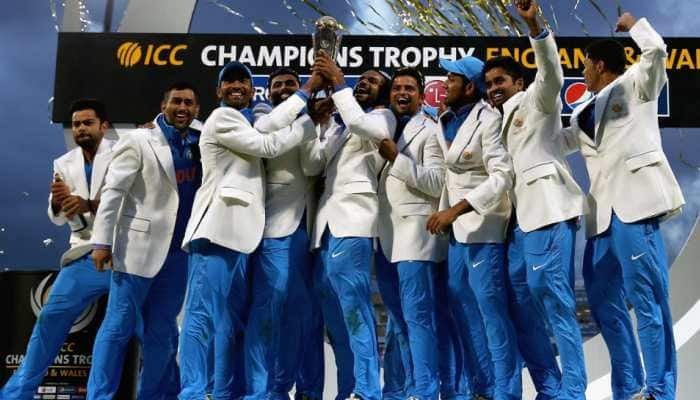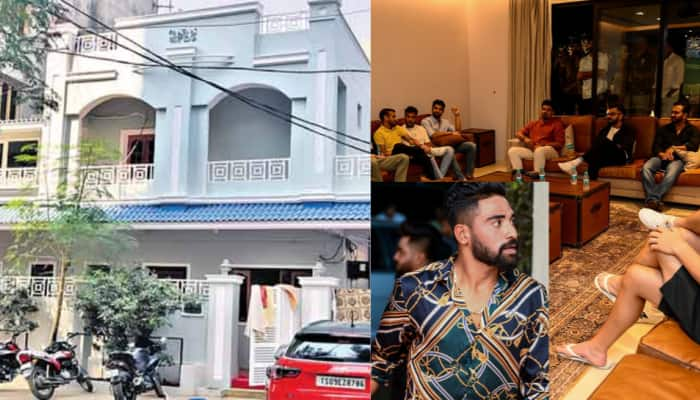When to take second Covishield vaccine dose? Here’s what AstraZeneca says
“An immunization policy that aims to vaccinate the largest number of people in the quickest possible time with at least one dose makes sense in the present circumstances in India,” AstraZeneca chief investigator said.
- Professor Andrew Pollard said the immunization policy in Britain and India should not be compared because of the different circumstances in the two countries.
- “An immunization policy that aims to vaccinate the largest number of people in the quickest possible time with at least one dose makes sense in the present circumstances in India,” Pollard said.
Trending Photos
) Representational Image (Credits: PTI)
Representational Image (Credits: PTI) New Delhi: The chief investigator of the AstraZeneca vaccine trials on Friday (June 18, 2021) said that the efficacy of the COVID-19 vaccine significantly increases in the second and third months after taking the dose.
AstraZeneca, being sold under the name 'Covishield' in the country, is the pharmaceutical company behind the AZD1222 COVID-19 vaccine. Amid the ongoing debate over the efficacy and duration of various COVID-19 vaccines and the Centre’s directives, AstraZeneca on Friday backed the idea of keeping a 12-16 week gap between the two doses of its vaccine.
Professor Andrew Pollard, who is also the Director of the Oxford Vaccine Group, said the immunization policy in Britain and India should not be compared because of the different circumstances in the two countries.
“An immunization policy that aims to vaccinate the largest number of people in the quickest possible time with at least one dose makes sense in the present circumstances in India,” Pollard said.
The researchers and scientists stated that India, being a vast country with a huge population, most of which is unvaccinated when the deadly Delta variant is present, is “a widely spreading and increasing threat”.
India has administered a cumulative number of 26,89,60,399 (26.89crore) COVID-19 vaccine doses so far.
Pollard, who is also a professor of Paediatric Infection and Immunity at Oxford University in the UK noted that AstraZeneca is not working on a single-dose vaccine. “Two doses are needed. One may be good but the second is needed to boost protection,” said the scientist.
Pollard said that “in a situation of COVID-19 vaccine shortage it makes sense to ensure a measure of protection for the widest number of people rather than provide a better level of protection for a smaller number of people.”
AstraZeneca chief investigator explained his point by stating that one dose of Covishield provides above 70 percent protection against serious illness and hospitalisation which has to be the main concern.
“One should not be deterred or deflected by the fact that one dose provides only 30 percent protection against symptomatic illness,” the scientist said, adding symptomatic illness usually means nothing more than a cold, cough, and fever, which most people can easily handle.
“What we need to focus on is a high level of continuing protection against serious illness and hospitalisation,” Pollard said.
Meanwhile, India has increased the gap between the COVID-19 vaccine twice. In the beginning it the gap between two Covishield doses was set at four to six weeks, then increased to six to eight, and is now 12-16.
While answering the question on how the United Kingdom reduced the gap between two doses just as India increased its, Pollard said that UK government had decided to reduce the gap at a time when a substantial proportion of its population was already vaccinated.
“In India, the converse is the case. The vast majority of people are unvaccinated and unprotected. Therefore, you need to ensure that as many as possible are protected against serious illness and hospitalisation, even if that means a large number will have lower levels of protection against symptomatic infection,” the scientist explained.
Pollard said another sensible reason for extending the gap in circumstances where the supply of vaccine is short is that the level of the protection provided by one dose of AstraZeneca significantly increases in the second and third months after the jab.
Meanwhile, India on Saturday (June 19, 2021) reported 60,753 new COVID-19 infections, 1,647 coronavirus-related deaths and 97,743 discharges in the last 24 hours. The country's total COVID-19 tally has now increased to 2,98,23,546, of which, 2,86,78,390 people have recovered, while 3,85,137 have died of the virus.
(With PTI inputs)
Stay informed on all the latest news, real-time breaking news updates, and follow all the important headlines in india news and world News on Zee News.
Live Tv







)
)
)
)
)
)
)
)
)
)
